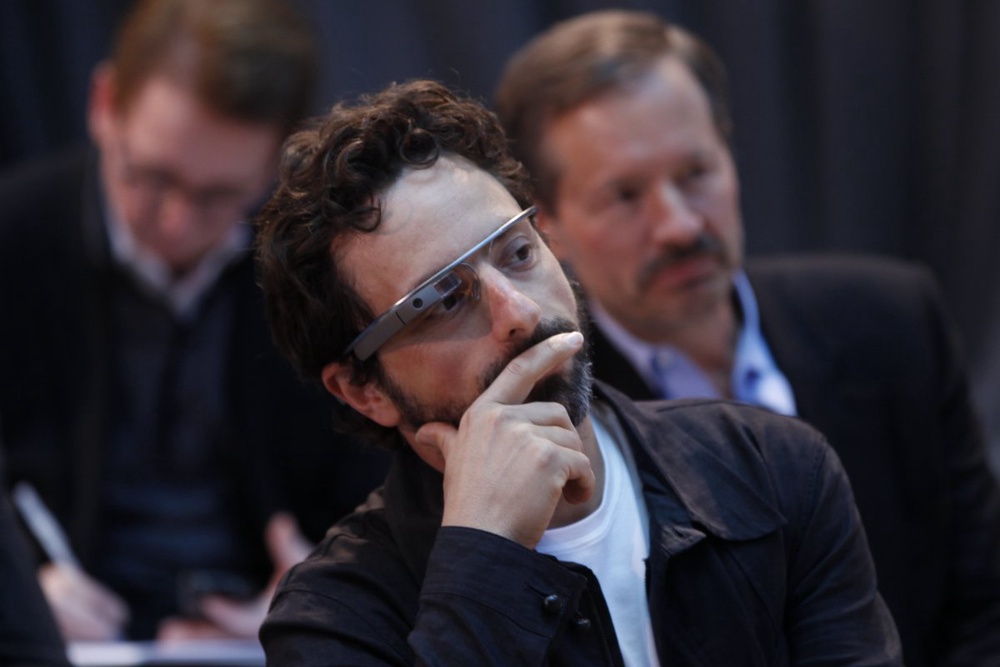
Powerhouse Silicon Valley venture capital firms on Wednesday joined Google to launch a syndicate devoted to backing entrepreneurs building products for Google's coming Internet glasses, AFP reports. Venture capital firms Andreessen Horowitz and Kleiner Perkins Caufield & Byers teamed with Google's investment arm to form the Glass Collective, an independent group devoted to funding entrepreneurs in the "Glass ecosystem." "This is a platform so new, so unlike anything before, that we can't guess what the killer apps will be," said John Doerr of Kleiner Perkins. "But, believe me, they're coming." Google co-founder Sergey Brin said in February that he envisions Google's Internet glasses hitting the market this year with an eye toward freeing people from unsocial habits engendered by "emasculating" smartphones. Glass frees the eyes as well as the hands when it comes to connecting to the Internet on the go, according to Brin. "That is why we put the display up high, out of the line of sight," Brin said, wearing the Glass eyewear he is rarely seen without. "If I wore a ball cap, the display would be on the brim and not where you are looking," he continued. "And sound goes through bones in the cranium, which is a little freaky at first, but you get used to it." Glass wearers can speak commands to the eyewear, and built-in camera technology allows pictures or video to be captured from first-person perspectives while people take part in what is happening. Brin said Glass eyewear will be available later this year at prices lower than the $1,500 charged to software developers and early adopters during a restricted test phase. Google has been speaking with eyeglass frame companies about ideas for a consumer version of the glasses, which he expected would cost "significantly" less than the Explorer prototypes. "The thesis of Glass is profoundly transformational," Marc Andreessen said in a post at a glasscollective.com website with information about vying for seed funding from the syndicate. "And as with the Internet and smartphones, a huge amount of work will be done by third-party developers to fully realize the Glass vision."





Powerhouse Silicon Valley venture capital firms on Wednesday joined Google to launch a syndicate devoted to backing entrepreneurs building products for Google's coming Internet glasses, AFP reports.
Venture capital firms Andreessen Horowitz and Kleiner Perkins Caufield & Byers teamed with Google's investment arm to form the Glass Collective, an independent group devoted to funding entrepreneurs in the "Glass ecosystem."
"This is a platform so new, so unlike anything before, that we can't guess what the killer apps will be," said John Doerr of Kleiner Perkins.
"But, believe me, they're coming."
Google co-founder Sergey Brin said in February that he envisions Google's Internet glasses hitting the market this year with an eye toward freeing people from unsocial habits engendered by "emasculating" smartphones.
Glass frees the eyes as well as the hands when it comes to connecting to the Internet on the go, according to Brin.
"That is why we put the display up high, out of the line of sight," Brin said, wearing the Glass eyewear he is rarely seen without.
"If I wore a ball cap, the display would be on the brim and not where you are looking," he continued. "And sound goes through bones in the cranium, which is a little freaky at first, but you get used to it."
Glass wearers can speak commands to the eyewear, and built-in camera technology allows pictures or video to be captured from first-person perspectives while people take part in what is happening.
Brin said Glass eyewear will be available later this year at prices lower than the $1,500 charged to software developers and early adopters during a restricted test phase.
Google has been speaking with eyeglass frame companies about ideas for a consumer version of the glasses, which he expected would cost "significantly" less than the Explorer prototypes.
"The thesis of Glass is profoundly transformational," Marc Andreessen said in a post at a glasscollective.com website with information about vying for seed funding from the syndicate.
"And as with the Internet and smartphones, a huge amount of work will be done by third-party developers to fully realize the Glass vision."


 +7 (777) 001 44 99
+7 (777) 001 44 99















































